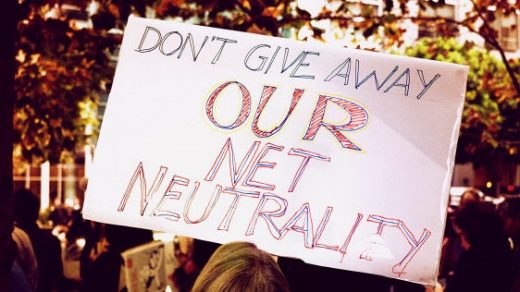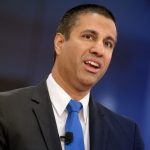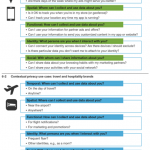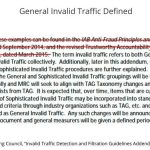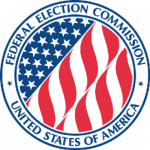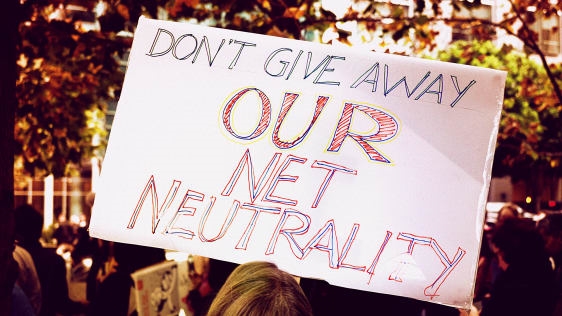Snubbing FCC, States Are Writing Their Own Net Neutrality Laws
For those who either hoped or feared that a December 14 vote by the FCC to scrap net neutrality regulations would settle the matter, it must feel like extra innings of a long hard-fought game. Along with the expected flood of lawsuits by activist groups fighting to preserve net neutrality, states have also taken up the cause. “We all agree that in an ideal world it should be handled at the federal level,” says California state senator Scott Wiener. “But if the federal government’s going to abdicate, then we need to take action, and I’m glad that a number of states are looking at this.”
Along with pursuing lawsuits over irregularities in the FCC process (like millions of fake citizen comments being submitted), several states are crafting their own net neutrality laws, which they will start debating as new legislative sessions commence this month. They would prohibit internet service providers from blocking or hindering access to legal online content sources, or from offering premium-bandwidth “fast lane” deals to others. Washington State was first to act, with Democratic and Republican state representatives debuting nearly identical bills back on December 13 and 14.
Such bipartisanship is rare. In most cases, the charge is led by Democrats, often with anti-Trump overtones. “I would say California and New York are two deep-blue states where Donald Trump is the least popular president in modern history,” says New York state senator Brad Hoylman, who represents a large chunk of Manhattan. He’s teaming up with Wiener, whose district includes all of San Francisco, to craft legislation that each state can use. “We have very similar constituencies in many regards, including technology and immigrants and LGBT folks,” says Hoylman. It would be hard to find a bluer coalition.
Looking for Leverage
Regardless of their politics, state net neutrality advocates face a tough course through unfamiliar territory. In its lengthy order abolishing net neutrality policy, the FCC asserted the federal government’s right to preempt other laws or policies. “Allowing state and local governments to adopt their own separate requirements, which could impose far greater burdens than the federal regulatory regime, could significantly disrupt the balance we strike here,” reads the FCC’s abolition order.
“Telecommunications in particular—it’s very, very hairy to try to do this without triggering federal preemption,” says Jake Egloff, the legislative aide to New York Democratic assemblymember Patricia Fahy. They have also crafted legislation establishing net neutrality requirements. Rather than regulate ISPs directly, it would exert financial pressure by only allowing the state and local governments to contract with ISPs certified as meeting New York’s net neutrality requirements. “I don’t want to say backdoor, but it is a side door,” says Fahy, whose district includes the state capital, Albany.
The state’s “power of the purse” is just one of the side-door measures her colleague Hoylman and California’s Wiener are considering. They might also make meeting net neutrality standards a prerequisite for awarding cable franchises or providing access to state-owned land or utility poles for laying cables. And they are looking at the front door approach of regulating ISPs directly under consumer protection law. “The FCC issued their fiat that tells the states they can’t do anything. We don’t think the FCC has that power, and they’ve lost that argument in court before,” says Wiener.
Related: The Political Dumpster Fire Of Net Neutrality Is Just Heating Up
He and other state legislators point to a March, 2016 court case as precedent. While under Democrat control, the FCC tried to preempt state laws in Tennessee and North Carolina that prevented municipal-owned broadband networks from expanding. The FCC said its mandate to expand access to broadband allowed it to override the state restrictions, which critics called favors to private ISPs. The Sixth Circuit Court Of Appeals disagreed, finding that the FCC didn’t have the authority to meddle in state affairs.
Washington State went right for the front door with its legislation, directly telling ISPs what they can and cannot do, in the belief that the FCC can’t stop them. “There is not a specific granting of preemption authority from Congress in this space,” says Republican Norma Smith, who represents a largely rural area of islands north of Seattle. “[The FCC] said, on the one hand, that they don’t have the authority to regulate standards and conduct on the internet,” says Smith’s Democratic counterpart and frequent collaborator Drew Hansen. “But on the other hand, they can still have the authority to preempt state laws…I don’t know how both of those can exist at the same time.”
Neither Smith nor Hansen, who represents wealthy Bainbridge Island and other areas across the bay from Seattle, is waiting to find out. Their nearly identical legislation, which they expect to consolidate into one bill, is among the most concise descriptions of net neutrality, each running less than three pages. By comparison, the 2015 FCC order establishing net neutrality regulations ran 313 pages, and the order to abolish them ran 210.
Hansen’s bill for instance, first requires ISPs to “disclose accurate information regarding the network management practices, performance, and commercial terms of its broadband internet access services sufficient for consumers to make informed choices.” That gives the state and consumer groups information they can use to challenge ISPs on whether they are living up to commitments. It goes on to prohibit blocking and impairing access to content (often called throttling) or allowing “paid prioritization.” It defines that last item to include “favor[ing] some traffic over other traffic…In exchange for consideration, monetary or otherwise, from a third party; or To benefit an affiliated entity.” It goes through and prohibits all the technical ways that an ISP could do that.
Paid prioritization, often called fast lanes, is the biggest worry for net neutrality advocates. “Yes, I think blocking and throttling can happen,” says Scott Wiener, “but it’s so extreme [and] there would be such a public outcry that I think the companies are less likely to want to take that heat.” Wiener doesn’t trust ISPs to say no to fast lanes, despite pledges some of them have made, given the demands of shareholders. “There will be enormous pressure on them to try and monetize their newly obtained power to charge for a fast lane,” he says. “I mean, we’ve seen that with the airlines. They can’t resist charging you for everything.”
Even Congressional Republicans in D.C. who supported the net neutrality rollback claim to be against blocking and throttling. Both would be prohibited by legislation introduced by Tennessee representative Marsha Blackburn, who ranks perhaps second to FCC chairman Ajit Pai on the villain list for net neutrality advocates. Blackburn leaves the door to paid prioritization open by allowing ISPs to offer “specialized services.”
At least some fellow Republicans in Washington State feel otherwise. Norma Smith’s bill has the same prohibition on paid prioritization as Hansen’s. “We clearly have Republicans like myself who are concerned about the impact on consumers and the people we represent,” she says, “and I think you are going to see [legislation] that is indeed bipartisan.”
The Privacy Precedent
A recent battle between Washington, D.C. and Washington State shows how the net neutrality fight may develop. Last March, Blackburn joined Republican Senator Jeff Flake of Arizona on legislation abolishing FCC regulations that prevented ISPs from collecting and selling customer information such as browsing history, app usage history, and location data. “While congressional Republicans may be making it easier to sell your data, lawmakers in Olympia have a strong record of accomplishment in protecting your personal information,” wrote Norma Smith in a Seattle Times op-ed after the Blackburn-Flake repeal passed.
In April, Hansen, Smith and 73 other state reps, including a few Republicans, introduced legislation to create a state version of the privacy rules that the U.S. Congress had just abolished. Despite the bipartisan support and success in the state house of representatives, the privacy billed failed to clear the Republican-controlled Senate in 2017. “My Republican colleagues in the senate just refused to give it a hearing,” says Hansen, the bill’s original author. He and Smith expect the fortunes to be better this year, now that Democrats control both houses in Olympia. “There was bipartisan support there, I know that personally,” says Smith, “but it didn’t get out of the senate, and I think it will probably have a much better chance this time around.”
Brad Hoylman makes a similar prediction for New York State, where the senate is also passing to Democratic control. At least seven internet privacy bills have been kicking around the senate and assembly in Albany. “I’ve not seen any indication that Senate Republicans in New York are prepared to stand up to Trump,” says Hoylman.
But even one-party ruled California has had a hard time. Its ISP privacy bill also failed to move ahead last year. “The legislative process, even for easy bills with no opposition, is treacherous,” says Wiener. And privacy legislation had opposition not only from ISPs but from Silicon Valley companies like Facebook worried about how it would affect their ability to profile and advertise to users.
“With [privacy legislation], there was unified, tech-telecom opposition to it,” says Wiener. “Net neutrality has divided industry, so you have the Googles and Facebooks and Netflixes and other technology companies that strongly support net neutrality, and you have the ISPs that oppose it.”
Plenty of other challenges remain for privacy and net neutrality legislation. “This is new territory for any state legislator to do net neutrality [policy],” says Ernesto Falcon, legislative counsel at the Electronic Frontier Foundation. “They’ve had the luxury of always having the FCC doing that for them, whether it was a Republican administration or a Democratic administration.”
Another challenge is time. The California legislature meets for most of the year, from January to November in 2018, but other states have much shorter schedules. New York State adjourns in June, and Washington runs only till March. Washington has a “citizen legislature,” where serving is only a part-time job.
States United Against the United States
In all, 22 states have introduced some legislation responding to the rollback of ISP privacy regulations, according to a compilation by the National Conference of State Legislatures. (Although only a few bills have passed so far.) That provides a list of usual suspects for states that will also come out with net neutrality legislation in the coming weeks, says Flacon, who is advising Wiener, Hoylman, and other states that he declines to name. “On a practical level, [privacy and net neutrality] are both areas where the people are demanding something very different from what Congress and the FCC are willing to permit,” says Drew Hansen.
Another clue to where legislation may appear is the growing list of states upset about irregularities and fraud in the public comments process for the FCC’s net neutrality rollback. Several have already announced plans to sue, with New York angling to lead a coalition.
As more states get active in the coming weeks, collaboration may increase. “As we craft bills, we’ll look at what other states are doing,” says Wiener. “We’ll make sure they know what we’re doing—not re-create the wheel.” Just the combination of California and New York is a mighty one. Together they account for about one-fifth of the country’s population and economic output.
These states also have a personal connection. Wiener and Hoylman have been friends since their Harvard Law School days in the mid-’90s, and they have traded legislative ideas before. “I’m stealing this idea from Scott Wiener,” says Hoylman. “I’m not at all embarrassed to say that I borrow from counterparts on the other coast.”
Patricia Fahey in New York State got the idea for her bill from Washington governor Jay Inslee, who first proposed limiting state business to net neutrality-friendly ISPs. (On December 13, Inslee held a joint press conference with Smith, Hansen, state attorney general Bob Ferguson, and business leaders to announce a multi-pronged net neutrality offensive.)
All the legislators I spoke to say they are keeping an eye on other states. But they are also watching their own constituencies. Several national polls show that majorities of Americans, even a majority of Republicans, support some form of net neutrality regulation. “One of the things that has been significant is hearing from so many small business owners [and] our small telecom providers all supporting this effort [for a net neutrality law],” says Smith. “I represent a rural economy, and I want the folks that I represent to be able to participate fully in the economy of the 21st century.”
With her Republican counterparts in D.C. holding very different notions of how to achieve those goals, Smith and all the state legislators working on net neutrality laws are in for a long fight. Preemption will be the big battle, and with each state writing its own laws, it may take more than a single case to resolve. Meanwhile state attorney generals, along with activists, will also be suing the FCC over how it handled the whole repeal process.
Just dragging the issue out could be a win for those who advocate more aggressive net neutrality protections. Uncertainty about regulations makes businesses nervous and hesitant to invest. The ISPs that lobbied to undo federal regulations may regret the move, warns Wiener. “For the companies that repealed net neutrality, they need to understand that they’re going to have a fight state by state,” he says. “So maybe we should go back and have net neutrality [regulated] federally to avoid that.”
Fast Company , Read Full Story
(28)

